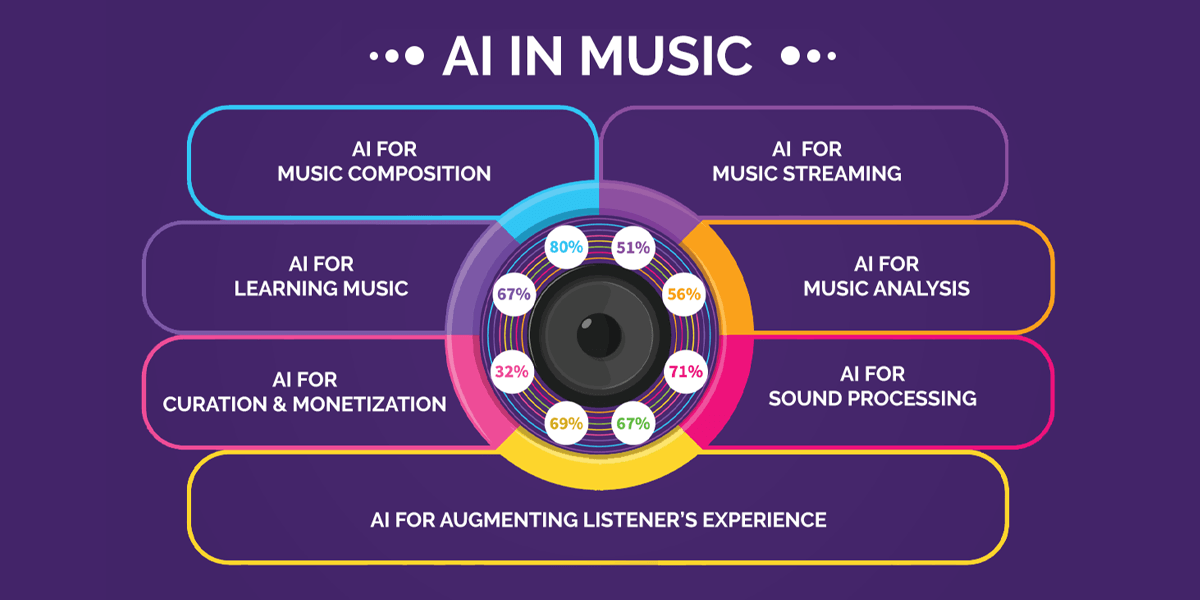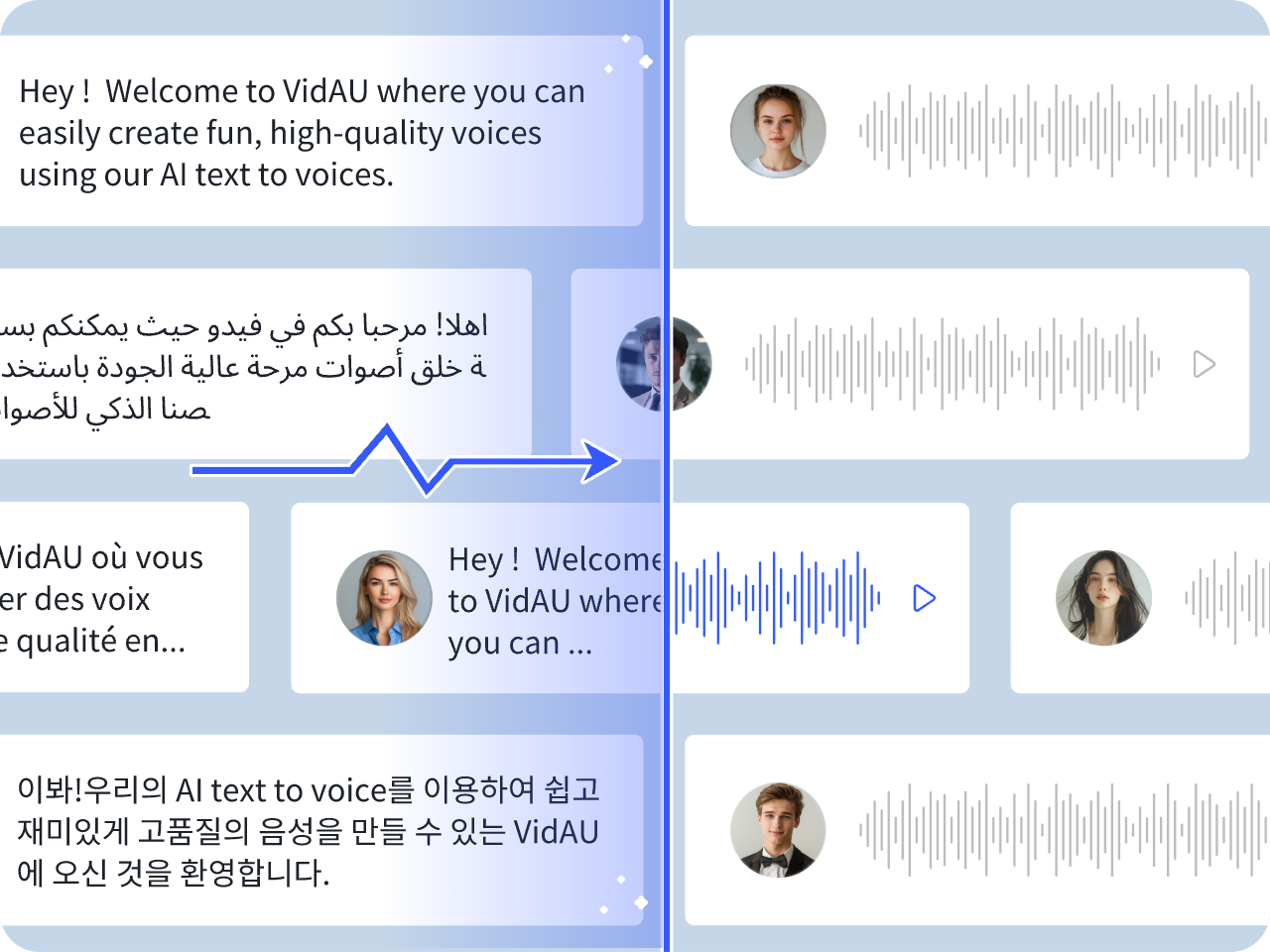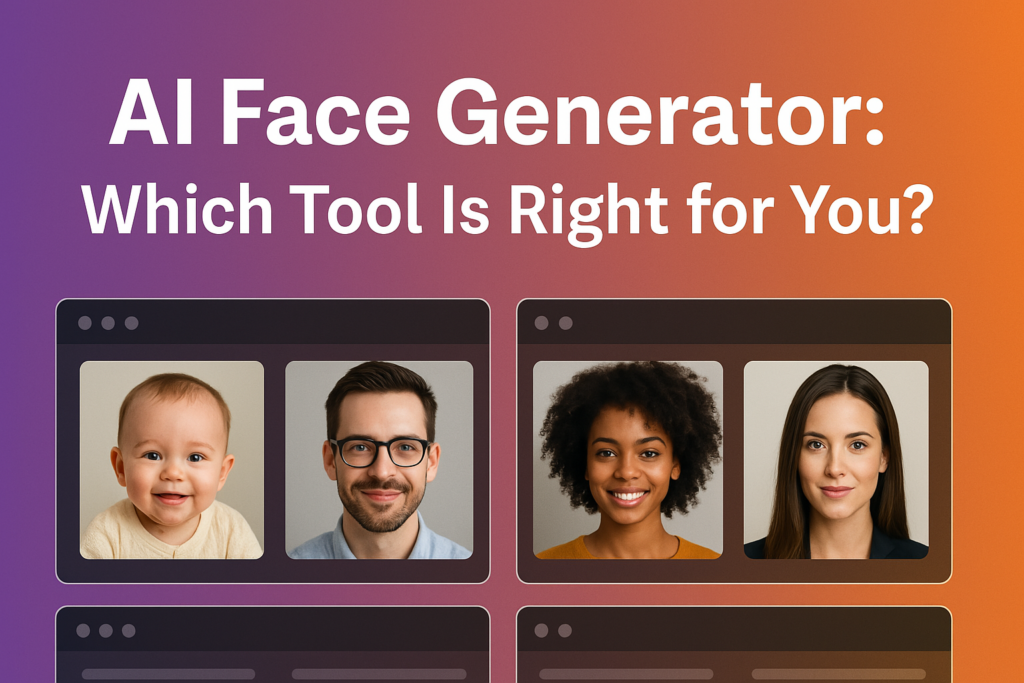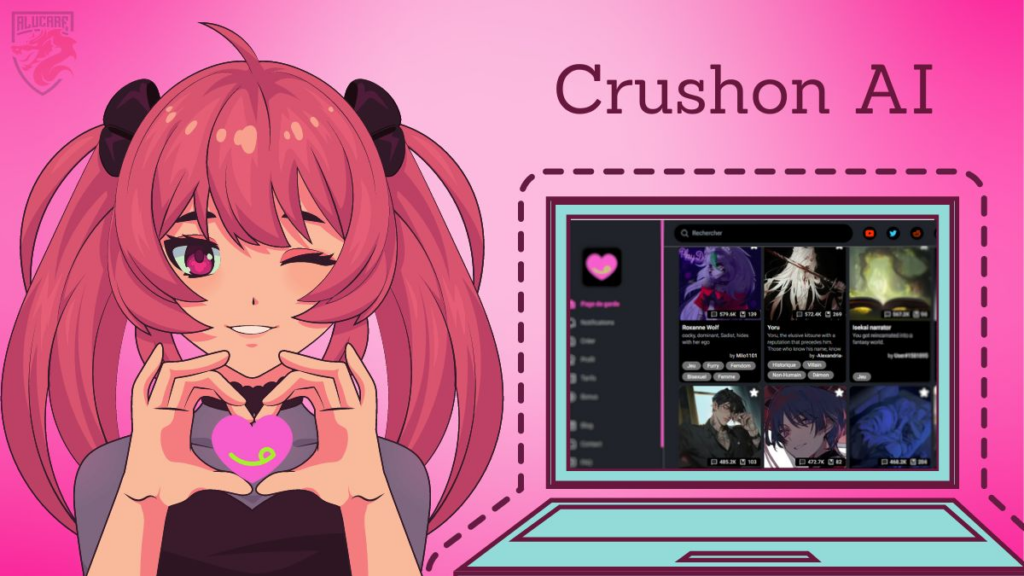AI-Generated Music Impacts and Innovations
In an era where technology is rapidly advancing, the realm of music composition has embraced a groundbreaking innovation – AI-generated music. Artificial Intelligence (AI) is revolutionizing the way music is created, offering unprecedented opportunities for musicians, composers, and enthusiasts alike. This article delves into the marvels of AI-generated music, exploring its benefits and diverse applications in contemporary music culture.
Benefits of AI-Generated Music:
1.Endless Creativity:
AI-generated music transcends conventional boundaries, offering an infinite wellspring of creativity. With AI algorithms capable of analyzing vast musical datasets and recognizing patterns, composers can explore new musical territories and experiment with diverse styles, genres, and compositions. This limitless pool of creativity fosters innovation and enables artists to break free from traditional constraints, unleashing a wave of fresh, captivating melodies.
2.Efficiency and Productivity:
AI-powered music composition tools streamline the creative process, enhancing efficiency and productivity for musicians and composers. By automating tasks such as melody generation, chord progression, and instrumentation, AI algorithms empower artists to focus their energy on refining ideas and exploring novel musical concepts. This accelerated workflow not only saves time but also fosters a more dynamic and iterative approach to music creation, leading to richer, more immersive compositions.
3.Personalized Music Experiences:
AI-generated music has the remarkable ability to cater to individual preferences and tastes, delivering personalized music experiences to listeners. Through sophisticated machine learning algorithms, AI platforms can analyze user behavior, preferences, and listening habits to curate bespoke playlists, recommend new tracks, and even generate custom compositions tailored to each listener’s unique preferences. This level of personalization enhances engagement, fosters deeper connections with music, and transforms the listening experience into a profoundly enriching journey.

Applications of AI-Generated Music:
1.Film and Media Production:
AI-generated music is revolutionizing the landscape of film and media production, offering filmmakers and content creators a treasure trove of original soundtracks and scores. By harnessing the power of AI, filmmakers can access a diverse array of royalty-free music tailored to their specific scenes, moods, and narrative arcs. Whether it’s epic orchestral arrangements, ambient soundscapes, or pulsating electronic beats, AI-generated music provides filmmakers with the flexibility and creative freedom to elevate their storytelling and captivate audiences worldwide.
2.Video Games and Virtual Reality:
The gaming industry is embracing AI-generated music as a transformative tool for enhancing player immersion and enriching gaming experiences. AI algorithms can dynamically generate adaptive soundtracks that respond to in-game events, player actions, and environmental cues, heightening suspense, intensity, and emotional resonance. Whether it’s crafting epic battle themes, serene exploration melodies, or haunting ambient tracks, AI-generated music adds an extra layer of depth and immersion to virtual worlds, captivating players and transporting them to new realms of imagination.
3.Advertising and Marketing:
AI-generated music is reshaping the landscape of advertising and marketing, offering brands and advertisers an innovative way to connect with consumers and convey their brand identity. By leveraging AI algorithms to compose original jingles, soundtracks, and audio logos, marketers can create memorable and impactful sonic branding experiences that resonate with audiences across various channels and platforms. Whether it’s crafting catchy tunes for commercials, podcasts, or social media campaigns, AI-generated music enables brands to establish a distinct auditory identity and leave a lasting impression on consumers.
Conclusion:
AI-generated music represents a paradigm shift in the world of music composition, ushering in a new era of creativity, efficiency, and personalization. From endless creative possibilities to transformative applications across various industries, AI-generated music is redefining the way we create, consume, and experience music in the digital age. As technology continues to evolve, the harmonious fusion of human creativity and artificial intelligence promises to unlock new realms of musical expression and inspire generations to come.






